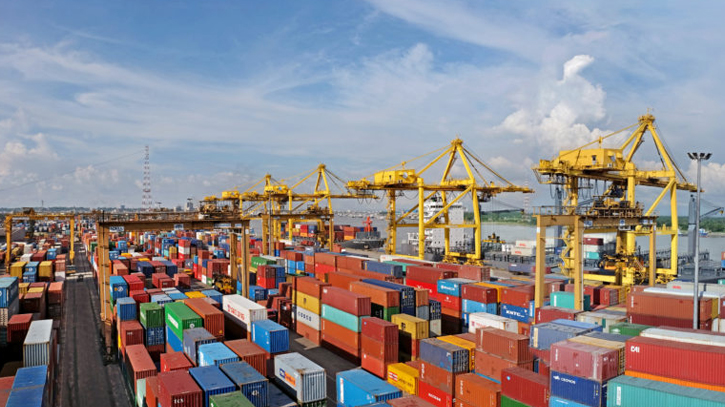
Chittagong port. Photo : Collected
The year has seen a significant decline in the export-import sector due to the inflation resulting from the war. One of the busiest ports in the world, Chittagong port has experienced a decrease in its activities by 30 to 35 percent, according to the port authority.
After the lifting of the worldwide lockdown imposed due to the Covid-19 pandemic, Chittagong Sea Port has emerged as one of the most important ports globally. In 2020, the port dropped nine places to rank 67th among the top 100 ports.
Currently, the port handles 45,000-48,000 TEUs (Twenty-foot Equivalent Units) daily, a decrease from the previous 67,000-70,000 TEUs daily, which has also impacted the revenue. The current revenue has declined by 40 percent.
"The Chittagong seaport is often referred to as the 'Golden Gate of Prosperity' because approximately 92 percent of the import-export activities are conducted through this gateway port of the country. In particular, almost 100 percent of container goods pass through this port, but its activities have significantly declined," Md Ruhul Amin Sikder, Secretary of the Bangladesh
Inland Container Depots Association (BICDA), told the Daily Messenger over the phone.
He added that the freight charges have also decreased due to the decline in export and import. In July, the freight charge was $2,500, which has now reduced to $300.
Chittagong port is renowned as one of the busiest ports in the world for handling containers. Established in 1977 with the handling of only six (TEUs), the port now manages an average of 3 million containers annually.
According to a study conducted by Germany's Hamburg Port Consulting, Chittagong Sea port will need to handle at least 5.6 million TEUs containers by 2036 to support the pace of Bangladesh's economy. To achieve this, a growth rate of 13 percent annually in container handling has been estimated.
Port users believe that with the establishment of 100 economic zones in the country and the ongoing pace of industrialisation, the port will have to efficiently handle a larger volume of containers.
Muhammad Hatem, Vice President of the Bangladesh Knitwear Manufacturers and Exporters Association (BKMEA), said, “Though the progress of industrialisation is slow, foreign investment is increasing in the 100 economic zones, necessitating the port to maintain international standards and become more efficient.”
Over the past ten years, the port has made significant improvements, enabling smooth uploading and unloading of cargo, according to Hatem.
Trade leaders are also calling for the expansion of ports and the establishment of a new deep seaport. Various initiatives are being undertaken and implemented to expand the port's capacity and increase productivity.
Messenger/Disha








